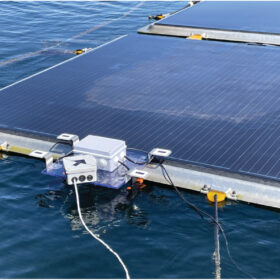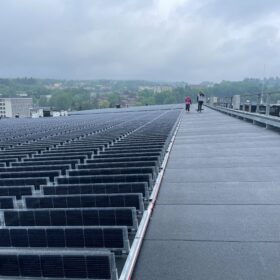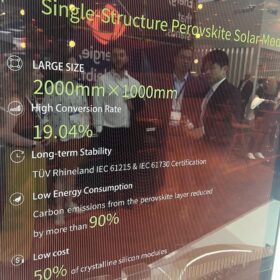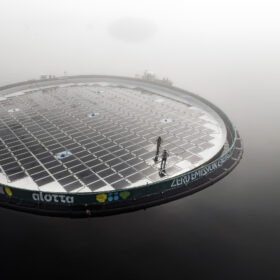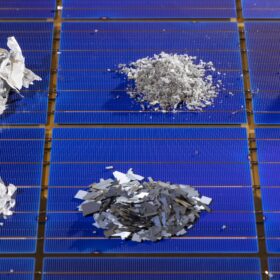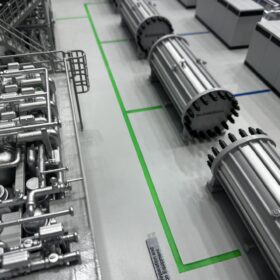Glint Solar unveils software for early-stage BESS projects
The Norwegian PV planning software company has released a new product for prospecting, analysis, and design of battery energy storage system (BESS) projects at the early stage.
New model to measure wave-induced loss in floating PV
Researchers have developed a three-step technique to estimate power generation loss in floating PV farms resulting from changes in tilt and mismatch losses. The new module was tested in an experimental setup and showed that electricity losses mainly depend both on system design and location.
The Hydrogen Stream: Just 17% of EU hydrogen projects likely on track
Westwood Global Energy Group says just 17% of the European Union’s hydrogen projects will advance without intervention, while Smartenergy says Spain’s Orange.bat project has cleared a key environmental hurdle and will launch in May 2028.
At high latitudes, vertical PV is more profitable in February than horizontal panels in June
A 248 kWp solar system deployed on the roof of Oslo’s Ullevaal Stadium was found to be more profitable in February than a comparative horizontal array in June. The vertical panels’ ability to generate more energy in winter months than horizontal equivalents helped save more money against Norway’s typically high electricity prices in winter.
DNV shares technology performance level chart for perovskite solar modules
The technology performance level chart is designed to help perovskite module manufacturers develop technical bankability and highlight the economic viability of their technology.
Contract signed for world’s northernmost floating solar plant
The 160 kW floating solar system, from Norwegian renewable energy company Alotta, will be deployed off the Norwegian coast, helping to reduce the diesel and CO2 consumption at a site belonging to a fishing company.
Minimizing contamination between different materials key to efficient PV module recycling
An international team of industry and researchers is developing technology and methods to improve the industry’s ability to recycle decommissioned solar panels, avoiding waste and targeting recovery of silicon, silver, glass, and polymers with a purity sufficient for further use in the PV industry or beyond.
The Hydrogen Stream: Luxcara advances 20 MW hydrogen project in Norway
Luxcara says preparatory work for its Bodø electrolysis plant is underway in Norway, with commercial operations set to begin in 2026, while ACWA Power and Snam have signed an agreement to deliver hydrogen from Saudi Arabia to Europe.
The Hydrogen Stream: 41 hydrogen projects to start in Africa by 2029
The Energy Industries Council (EIC) says 41 hydrogen projects are set to begin development across Africa in the next five years, led by North African nations like Egypt, Algeria, and Morocco.
Norway records 148.68 MW of new solar in 2024
Norway deployed 148.68 MW of solar in 2024, pushing its cumulative installed PV capacity past 750 MW.

